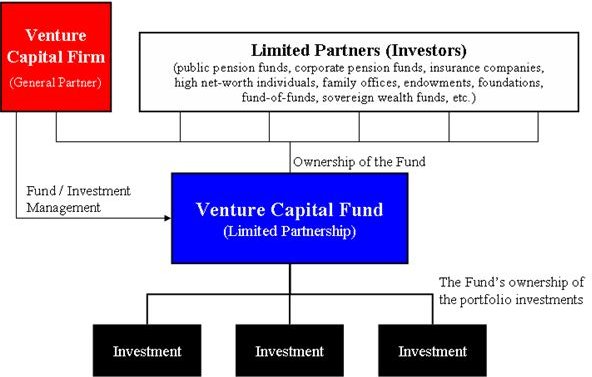Venture Capital: The Advantages and Disadvantages
Understanding Venture Capital
If you are looking for ways to fund your business, do you understand venture capital, its advantages and disadvantages? If not, here you will find all you need to know as well as the pros and cons of this type of funding.
Venture capital is also known as seed capital or private capital. It is mostly used to help businesses that have high potential for growth. One company that is no stranger to most people is Digital Equipment Corporation (DEC) which was founded in 1957 using venture capital funds obtained from George Doriot who owned the venture capital firm American Research and Development Corporation (ARDC).
Venture capital funds are used primarily for companies who may not have sufficient operating history to qualify for traditional loans through a bank. Most start-up high technology companies have used venture capital funds in order to get started. In most cases, these companies are required to provide the venture capital company with a form of profit sharing by providing the venture capital firm equity in the company.
Venture capital funds are not easy to obtain. In fact, most business owners who apply for venture capital funds will be turned down. Unless a business plan can easily demonstrate high rates of return within a five year period, chances are very good that the request for venture capital funds will be turned down.
The Pros of VC
There are some benefits to venture capital funding. In many cases, the company able to secure venture capital funds can receive services that may include:
Business Consultations - Many venture capital firms have consultants on their staff that are well versed in specific markets. This can help a start up firm avoid many of the pitfalls that are often associated with start-up business ventures.
Management Consultations - Unfortunately, not all entrepreneurs are good business managers. Since venture capital firms almost always require a percentage of equity in the start-up firm, they likely will have a say in how the firm is managed. For the non-management expert, this can be a significant benefit.
Human Resources - In terms of finding the best talent for start up firms, venture capital firms often provide consultants who are specialists in hiring. This can help a start up firm avoid the pitfalls of hiring the wrong people for their company.
Additional Resources - Starting a new business is fraught with concerns about legal matters, payroll matters, and tax issues. It is not unusual for a venture capital firm to take an interest in providing these resources since they have a vested interest in the success of the company.
In general, business resources that are provided by venture capital firms who have taken an equity position in a start up company can be invaluable to the success of the company. Many start up firms securing venture capital are able to thrive and become giants in their industries.
Cons of Venture Capital

Securing venture capital typically means that you have to give up something in exchange for the funding. Most venture capital firms are not interested in merely receiving the capital that they have invested along with a standard interest rate. In fact, there are some things that venture capital firms may ask for that may surprise you. These include:
Management Position - In many cases, a venture capital firm will want to add a member of their team to the start up company’s management team. This is generally to ensure that the company can be successful, though this can also create internal problems.
Equity Position - Most venture capital firms require that the company give up an equity position to them in return for their funding. This amount is not small, in many cases it can be as much as 60 percent of the equity in the company. In effect, this means that the entrepreneur is not controlling their business; it is being controlled by the venture capital firm.
Decision Making - One of the biggest problems that many entrepreneurs face when they agree to accept venture capital is they often are giving up many key decisions in how their company will operate. Venture capital firms that have taken an equity position want a “seat at the table” when any major decision is made and they often have the power to override decisions.
Business Plans - When a business plan is written and submitted for financing considerations, most finance companies will agree to sign a non-disclosure agreement. This is not the case in most venture capital firms. Venture capital firms will nearly always refuse to sign a non-disclosure agreement due to the legal ramifications of doing so. This can put ideas from an entrepreneur at risk.
Funding Plan - If an entrepreneur writes their business plan and determines they need $500,000 to get the business launched, they may be lulled into thinking that these funds will come up front. This is simply not the case. Venture capital firms almost always set goals and milestones for releasing funds. Funding from venture capital firms is typically done in stages with an eye on the expansion of the business.
These are only a few of the possible problems an entrepreneur could face when they secure venture capital funding. It is important that they carefully review all agreements and have them reviewed by an attorney as well.
Conclusion
If considering venture capital, the advantages and disadvantages are many. This type of funding is not right for everyone. Those companies who have high growth potential such as electronics manufacturers, green technologies, and other high tech ventures are usually the ones who fare best with venture capital funding. Before you decide that venture capital is right for you, make sure that you know all of the pros and cons and do your research.
Resources
Sources:
Investopedia
- Definition of Venture Capital: https://www.investopedia.com/terms/v/venturecapital.asp
- Kochanek, David; Top 9 Venture Capital Interview Questions https://www.investopedia.com/articles/financial-careers/08/venture-capital-interview-questions.asp
- Beattie, Andrew; Georges Doriot And The Birth Of Venture Capital https://www.investopedia.com/articles/financialcareers/10/georges-doriot-venture-capital.asp
- Loiscono, CPA, Stephanie; Private Equity A Trendsetter For Stockshttps://www.investopedia.com/articles/07/private-equity.asp
Image Credits:
- Cash: Purchased Image via iStockPhoto/bobainsworth
- Venture Capital Fund Diagram via Wikimedia Commons.org/Urbanrenewal Public Domain
This post is part of the series: Business Ownership
Focusing on business ownership for entrepreneurs and home based business ideas.
